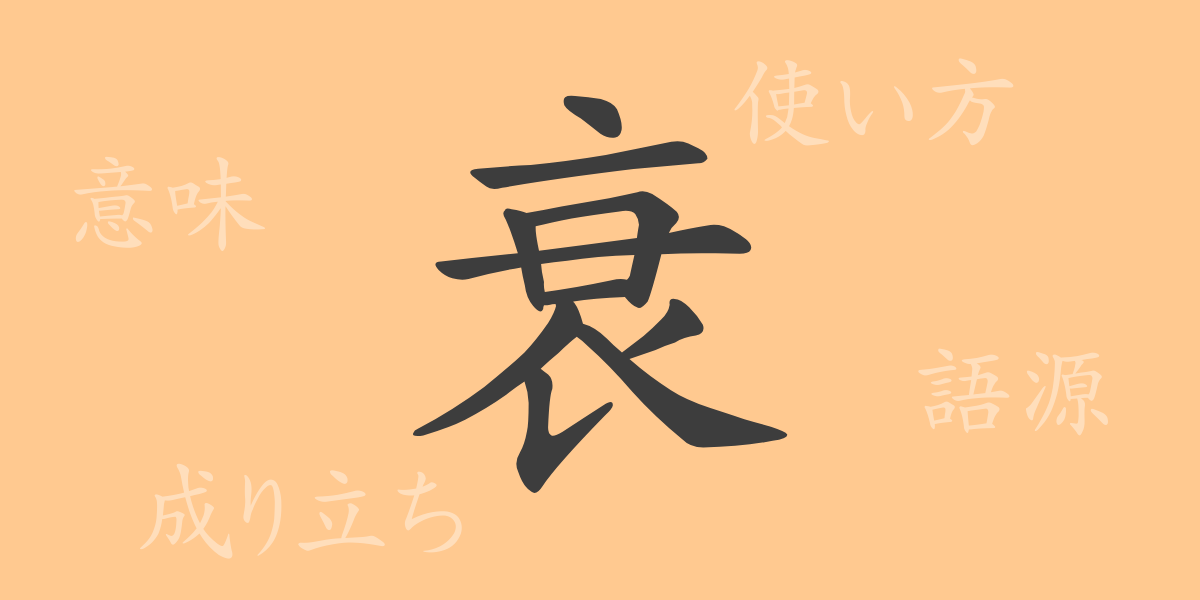The complexity and beauty of each Kanji character illustrate the depth of the Japanese language. ‘衰’ (スイ) may not be frequently used in everyday conversations, but its shape and meaning have influenced many phrases and expressions. This article will explore the origins, contemporary usage, and the various phrases and idioms associated with the kanji ‘衰’.
Origins of 衰
The kanji ‘衰’ originated in ancient China as a pictograph representing the drooping of clothes. Initially depicting the literal act of clothes hanging down, it evolved to metaphorically signify decline, as in things going downhill, mirroring the disheveled drooping of clothes.
Meaning and Usage of 衰
The primary meanings of ‘衰’ are ‘to weaken’ or ‘to decline.’ It is commonly used to describe diminishing states, such as in health, economic conditions, or social status. In literature, it’s also employed to poetically express the ephemeral or transient nature of things.
Readings, Stroke Count, and Radical of 衰
Key details about the kanji ‘衰’ are as follows:
- Readings: On’yomi ‘スイ’, Kun’yomi ‘おとろ.える’
- Stroke Count: 10 strokes.
- Radical: ‘衣’ (ころもへん), the clothes radical.
Phrases, Idioms, and Proverbs Using 衰
The kanji ‘衰’ appears in various phrases and idioms that reflect its meanings:
- 衰退 (すいたい): Signifies a decline or decrease in power or momentum.
- 風光明媚 (ふうこうめいび): Describes beautiful and refreshing natural scenery. Although ‘衰’ is not used here, the ‘光’ in ‘風光’ acts as a counterpoint to the idea of decline represented by ‘衰’.
- 栄枯盛衰 (えいこせいすい): A phrase meaning the rise and fall or the ebb and flow of life, symbolizing the transient nature of worldly changes.
Conclusion on 衰
While not frequently encountered in everyday scenarios, the kanji ‘衰’ plays a significant role in the Japanese language, particularly within literary and historical contexts. The idioms and proverbs containing ‘衰’ illustrate life’s transitions and the shifts in nature, enriching Japanese expression. Through exploring ‘衰’, we gain a deeper appreciation of the subtleties of the Japanese language and its ability to convey complex human emotions and philosophical thoughts.

























